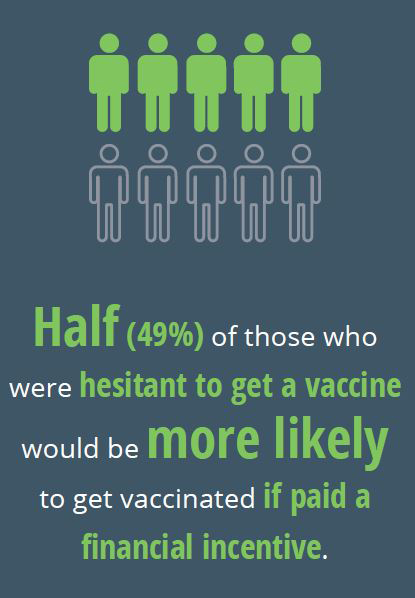A carrot and stick approach would “move the needle” on COVID-19 vaccination rates in WA, with the pandemic remaining an anchor on confidence for more than half of West Australians, according to CCIWA’s latest Consumer Confidence Survey.
The survey of WA households found consumer confidence ebbed slightly in the September quarter after swelling to record highs in March, though short and longer-term expectations remain well above pre-pandemic levels.

More West Australians expect stable conditions (55 per cent) in the short term, while one in three (33 per cent) expect conditions to improve. An unchanged 52 per cent of WA households expect the economy to get stronger over the next 12 months.
For the fourth consecutive quarter, the State Government was the top factor sustaining household confidence in WA (63 per cent). Household confidence was also buoyed by record-low interest rates (38 per cent). With Australia’s largest states experiencing COVID restrictions, domestic economic news dampened the outlook of one in three (29 per cent) West Australians. Concern about an outbreak in WA has inched up to 58 per cent, after falling for the past 15 months.
Vaccine ambivalence
The report also highlighted the reasons behind WA’s “vaccine ambivalence”, and the best measures to fix it.
Read the full Consumer Confidence Survey – September 2021 report.
Of those yet to get a jab; half (55 per cent) still intend to be vaccinated; one in three (33 per cent) are hesitant; and (12 per cent) indicated they won’t get a vaccine.
Of those yet to be jabbed, 63 per cent said they are worried about side effects. Around one quarter (25 per cent) are “sceptics,” either not trusting the Government or not trusting vaccines. One in 10 (11 per cent) just don’t like needles.

Breaking down the demographics of reluctant West Australians, the report found:
- One in four (25 per cent) respondents aged 40+ have not yet been vaccinated. More than half (54 per cent) of those would reconsider if they couldn’t enter shopping centres, cafes, restaurants, bars and nightclubs. The same proportion (54 per cent) will be swayed by the option of taking the Pfizer or Moderna vaccines, which are now available.
- Two in five (41 per cent) lower-income survey respondents are unvaccinated. Of these, 46% would respond to a financial incentive. This would also sway 57 per cent of middle-income earners.
- Two in five (40 per cent) high-income earners are yet to get a jab. They would be persuaded by exclusion from workplaces, schools, childcare centres and tertiary education (56 per cent), or being unable to travel interstate (55 per cent).
- Seven in 10 (69 per cent) unemployed survey respondents are yet to get vaccinated. They would be swayed by a financial incentive (44 per cent) or being barred from international travel while they remain unvaccinated (41 per cent).
- Among younger respondents (under 39), 63 per cent intend to be vaccinated while 31 per cent are hesitant. They would respond to exclusion from work, school, childcare and unis (79 per cent) and also to a financial incentive (58 per cent). At the time of this survey, this cohort could not yet access vaccination.
“Surpassing the vaccination level of 80 per cent articulated in the National Plan is the only way WA businesses and households can leave behind the painful era of economic lockdowns and closed borders,” said CCIWA Chief Economist Aaron Morey.
For more Economic Insight see CCIWA’s latest economic reports.
For advice and guidance running your business, contact CCIWA’s Employee Relations Advice Centre on (08) 9365 7660 or email [email protected].






